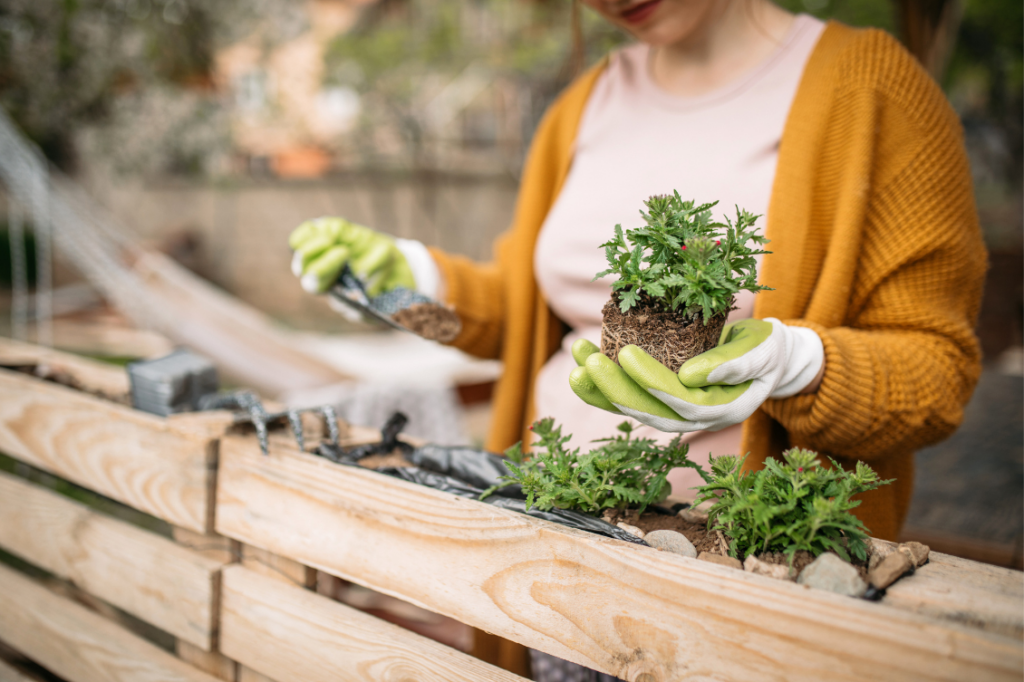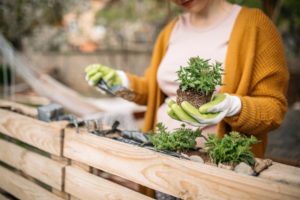

Hobbies can best be defined as a purposeful activity that holds meaning for the individual, separate from their ‘job’ or another activity. While one is a task to be completed for the benefit of others or financial gain, the other has the sole purpose of entertaining and relaxing us.
A hobby stimulates neurotransmitters, inducing dopamine and releasing feelings of anticipation and excitement. This helps overcome the stress we might feel from undertaking other essential but necessary work throughout the day.
What distinguishes a hobby from mere relaxation is that a hobby has some objective purpose. Whether going for a walk, making a piece of craft, writing a short story, or cooking a meal, the point of a hobby is to display some skill, complete a task, or focus the mind on an activity. And while there’s no right or wrong answer for a hobby, certain exercises can tick one or two lists to help destress us.
A recent paper released by Nature Medicine shows that maintaining hobbies in older populations helps reduce symptoms of depression and increases happiness and life satisfaction, prompting mental and physical well-being. The report suggested that;
“Experimental efforts to increase hobby engagement may potentially alter subsequent mental well-being.
Indeed, the association of hobbies with life satisfaction is optimistic, given that it was seen not only in healthier respondents but also in respondents such as those in the USA, where a very high proportion of the respondents were living with long-standing mental or physical health conditions and where psychosocial interventions could be even more relevant.”
The study discovered no meaningful correlation between the European and Asian countries surveyed but found these same results to be likely across the board. Taking part in hobbies creates a positive and negative feedback loop, where the brain anticipates the pleasure and receives a reward when undertaking the task.
During the hobby, the brain can dissociate from stress or other negative feedback loops and focus on forming a positive pathway. Because of this, hobbies are great for helping destress us when we’re feeling overwhelmed.
But what are the best activities to undertake?
Exercise is known for helping boost our moods naturally, improving concentration and alertness, and cardiovascular and response systems. Fitness-related activities can also enhance our self-image. Even when our muscles are sore, we get a positive feedback loop, which is our brains rewarding us.
Socialising also has proven links with decreasing mental illness boosting empathy, trust, and self-esteem. Essentially, humans are still very ‘tribal’ — we look for approval from our peer groups and seek activities that cement these relationships.
Taking part in ball games or other sports is a great way to increase mental health and build positive associations and physical fitness. If the body is healthy, often the mind will improve too.
Perhaps you’re someone who doesn’t like switching off, preferring to remain busy to avoid the stress of later returning to an unfinished task’.
A helpful hobby, such as creating or baking something for others or endorsing a charity, can help fulfill the social aspect of mental health and give you an enjoyable but non-work-related task to take your mind off things.
Nature has a strong mental association with feelings of calm, joy, and creativity. While cities and urban areas reinforce the hustle and bustle, the countryside, forests, and lakes are more often a reinforcement of positive mental activity.
This may differ depending on the individual and personal experiences, phobias, or backgrounds. However, being in nature increases our feeling of connectedness, especially when mixed with physical activity, like camping or tramping.
In children, play helps them act through and experience certain difficult or new emotions, such as pain, fear, or loss, in a safe environment. We play to learn and reinforce behaviours, as well as to distress.
The same goes for adults. Play improves brain functions and stimulates creativity, imagination, and learning. Play encourages the connection of pathways, helping us feel young and energetic and helping stimulate our relationships with others.
Historically, play has also helped us learn and overcome challenging situations — even certain animals will use play to learn from situations and grow developmentally.
Mediation is the act of being present, drawing the mind to a single thought. It’s the ultimate expression of being single-minded, not allowing the brain to be distracted by any other intrusive or unwanted thoughts.
Practicing this act can greatly increase your energy levels and relationships with others, helping you stay in the moment. You may incorporate this mindfulness with a hobby activity or try meditation as a hobby itself.
The hardest part of any hobby is getting started. Any new change in our lives is often met with failure because we’re so used to the old activities and thoughts that trying something new takes effort, even when it’s enjoyable.
The key is to make time and stick to it. Allot some flexible time throughout the week and stick to it. Eventually, the manual task of reminding yourself becomes easier as you get used to performing the action. Eventually, not doing the hobby will be harder than doing it.
Which, in the end, is the point of any hobby — to deliver an enjoyable, replicable activity we want to be doing.